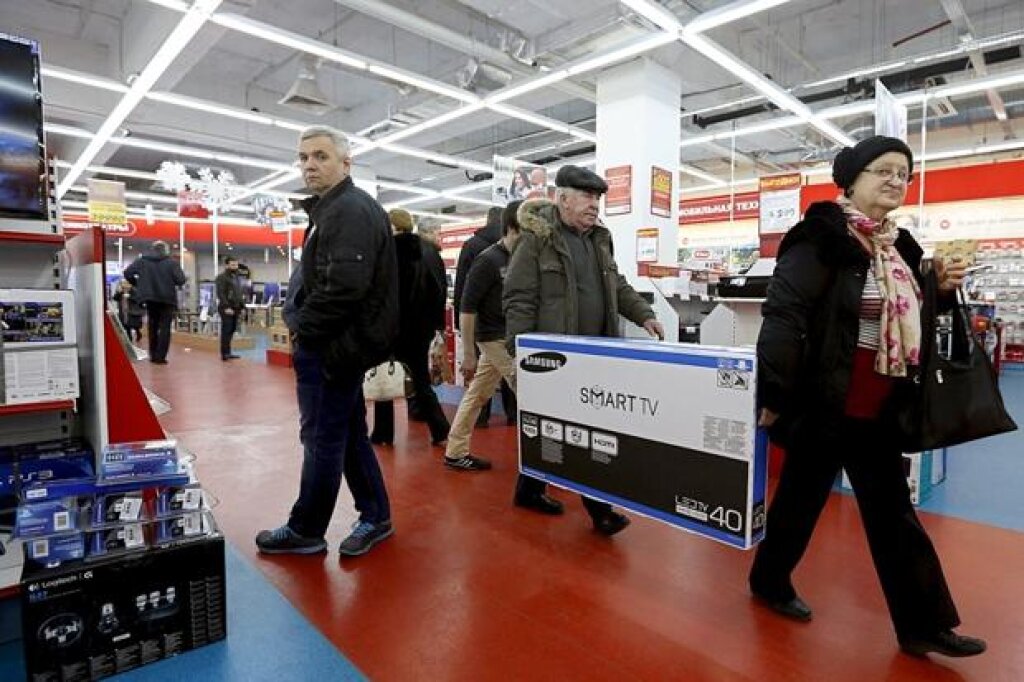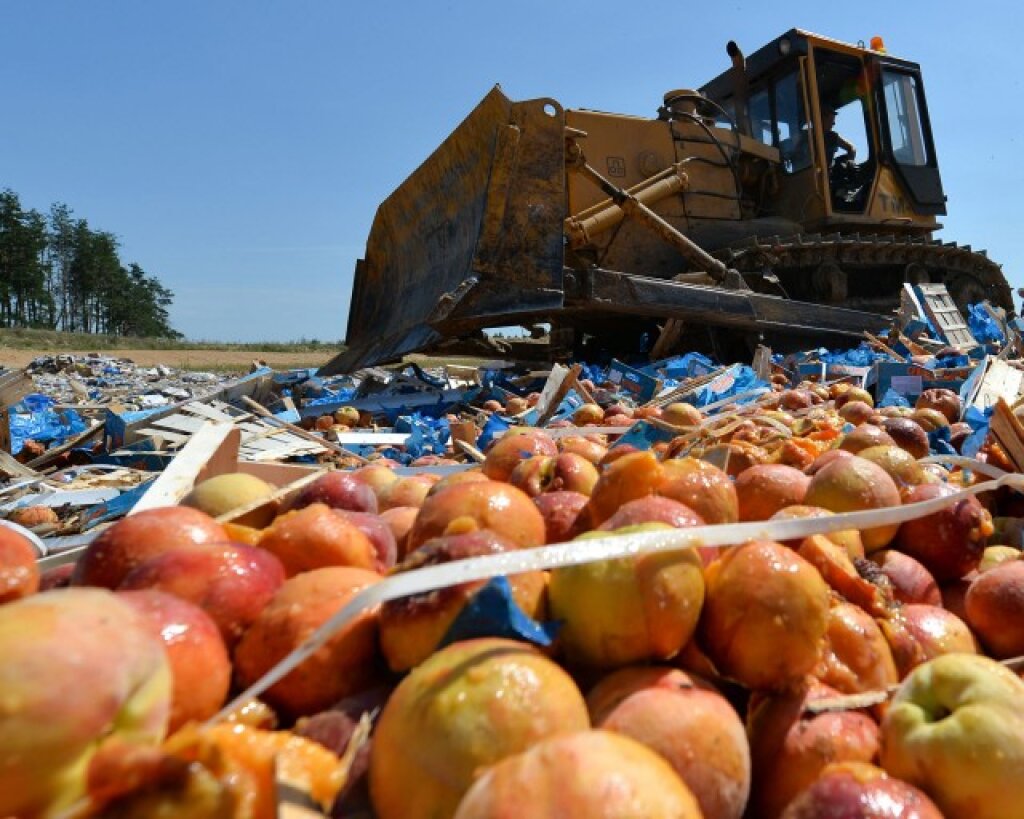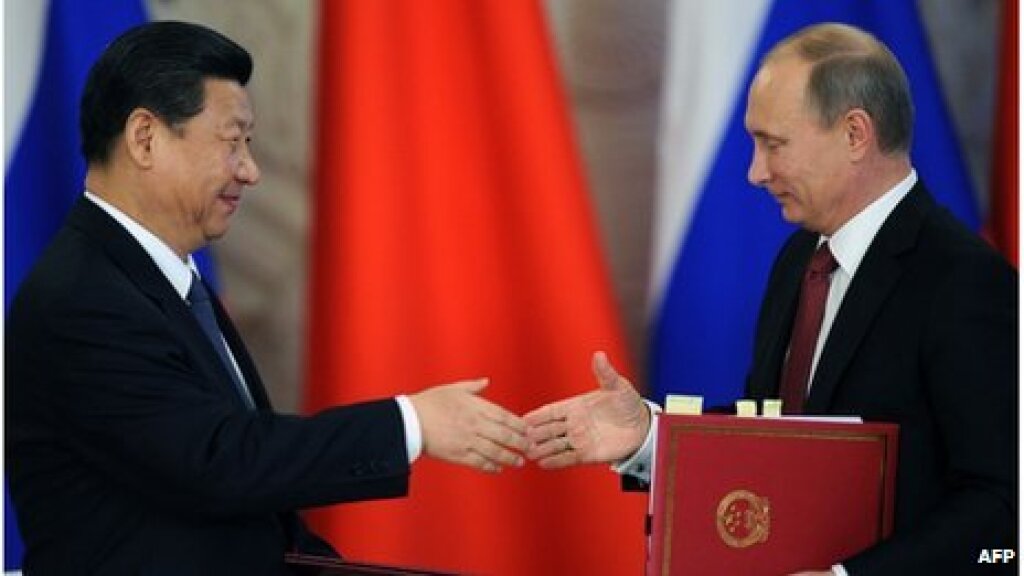Olga Shevchenko is the author of Crisis and the Everyday in Postsocialist Moscow (Indiana University Press, 2009). She is Associate Professor of Sociology at Williams College in Williamstown, MA
In the final weeks of 2014, a new trend emerged on Russian-language social media: people shared memories the worst economic moments they had lived through after the fall of socialism. The inevitable refrain “We have seen worse!” implied that there was nothing about the current recession that Russian citizens hadn’t competently handled before.
Indeed, the rapid collapse of the Russian ruble in mid-December may have triggered déjà vu among those who have been paying attention to the situation in Russia post-1991, as well as among Russian citizens themselves. As people rushed to convert their rapidly dwindling savings into hard currency or consumer goods, many chuckled, remembering the panic that followed the currency default of 1998: the lines for basic foodstuffs, empty store shelves, salespeople changing price tags several times a day to keep up with the plunging exchange rate. In the panic that ensued after the dollar jumped from 6 rubles to 22 in the matter of several weeks in August-September 1998, some Russians bought dozens of packages of buckwheat and salt. Others invested in household durable goods, often installing two or three refrigerators in their modest apartments, as a way to safeguard their savings and to prepare for stockpiling food if things turned truly dire.
If refrigerators were the items of choice in 1998, today’s savings seem to be enthusiastically invested into TV-sets. This preoccupation with television was not lost on Russian- speaking bloggers and journalists, who described the current state of public opinion in Russia as “a battle between the refrigerator and the TV set.” It is unlikely that most of them were referencing 1998 directly. Rather, the phrase points to the collision course between the lived reality of Russia’s economic recession (“the refrigerator”) and the mediated hyper-patriotism that has been filling state-controlled TV airwaves, pretty much to the exclusion of anything else (“the TV set”).
But the connection of the current events in Russia to the crisis of 1998 goes beyond the standoff between the TV set and the fridge. The very emphasis on the ordinariness, even normalcy of economic hardship is one that has its roots in prior strategies of dealing with economic uncertainty. Throughout the 1990s and early 2000s, a persistent sense of routinized crisis emerged among the Russian public. Many people I talked to in 1998 and after reached back to WWII, or to perestroika-era economic volatility, as they explained to me that “in Russia, we live in crisis all the time.” This sense of being used to, and adept at, navigating turbulent times was what gave many of them a feeling of self-worth and competence at a moment when more traditional identity markers, such as education or ideological loyalty, lost their value.
The popular perception of Russian life as inherently crisis-prone and unstable has been used strategically by Vladimir Putin, who, despite his personal indebtedness to Boris Yeltsin, never missed a chance to describe the first postsocialist decade as the “wild nineties” (likhie devyanostye). But this is also where the significance of the current economic crisis lies.
Putin’s popularity has always derived from his image of an architect of stability. He became acting Prime Minister in August 1999 and acting president on the last day of the same year, after Boris Yeltsin’s surprise resignation on New Year’s Eve of 1999. Much of his claim to legitimacy over the decade that followed has been rooted in his ability to deal with the consequences of the economic crisis of 1998. A statement he made during his first year in office testifies to how much of his persona was a product of the crisis discourse, but also how much he strove to move beyond it. “When I was appointed prime minister, it was interesting and it was an honor,” he told his biographer Andrei Kolesnikov in First Person (Public Affairs 2000). “I thought, ‘Well, I’ll work for a year, and that’s fine. If I can help save Russia from collapse, then I’ll have something to be proud of,’” adding, “and then I’ll move onto the next thing.” And move he did.
It is precisely because so much of his image was couched in contrast to the “wild nineties” that Putin has been noticeably reluctant to call the current situation a crisis. During his much-publicized press conference on December 18, he quipped, “You could call this a crisis, I suppose, or you could call it something else, you could apply any label you wish,” and then proceeded to use the term exclusively in reference to the military action in Ukraine and its consequences for international politics. Journalists were less guarded, bringing it up repeatedly, and exclusively in reference to the internal economic situation. But in the weeks after the conference, the ruble rate stabilized somewhat, and references to crisis became less prominent and more jocular in news programs and print media. The flow of patriotic spectacle on TV resumed. A headline in the popular daily Moskovsky Komsomolets proclaimed, tongue-in-cheek, “The crisis is over. Caviar is getting cheaper. The ruble is our everything.”
The 1998 crisis was effectively owned by the fridge. The crisis on 2014 seems to have been won by the TV set. At the start of a new year, it remains to be seen which appliance will claim 2015.



